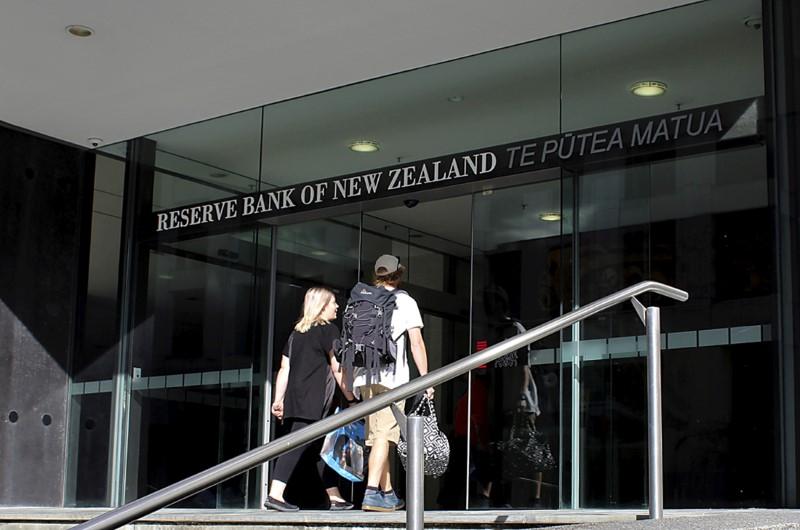
The Reserve Bank of New Zealand (RBNZ) defied market expectations it would adopt a more hawkish tone at its policy meeting on Thursday, retaining instead its neutral stance and sending the country’s currency to an 11-month low.
WELLINGTON The Reserve Bank of New Zealand (RBNZ) defied market expectations it would adopt a more hawkish tone at its policy meeting on Thursday, retaining instead its neutral stance and sending the country’s currency to an 11-month low.
The monetary policy statement accompanying the RBNZ’s decision to keep its benchmark interest rate steady at 1.75 percent was the clearest sign yet of the divergence between the central bank and the market on the inflation outlook.
“Underlying inflationary pressure is no different today than it was in February,” Assistant Governor John McDermott told Reuters in an interview, adding that a spike in headline inflation in the March quarter was mainly due to temporary rises in petrol and food prices.
Inflation accelerated to 2.2 percent in the quarter, well above the RBNZ’s projection of 1.5 percent, and the first time since 2011 inflation had reached the midpoint of the central bank’s target range.
“There is a lot of noise and some people are misunderstanding what they are seeing,” McDermott said. “I think some people have simply got it wrong.”
The bank’s consumer price index forecasts show inflation falling back to the bottom of the 1-3 percent target band next year.
It maintained an unchanged official cash rate (OCR) projection that implies the next move will be a tightening in late 2019, surprising economists who had expected that timeline to shift forward to the first half of 2019.
McDermott said the bank retains “a broad view that the next (rate) move could be up or down.”
“Premature tightening of policy could undermine growth, causing inflation to persistently undershoot the target midpoint,” the bank said in its Monetary Policy Statement.
Conversely, “further policy easing, in an attempt to see non-tradables inflation strengthen more quickly, would risk generating unnecessary volatility in the economy.”
Satish Ranchhod, a senior economist at Westpac in Auckland, said he agreed that some of the recent inflation was temporary but added that a strong outlook for construction would drive up prices.
“We do think inflation’s going to rise a bit more quickly than the Reserve Bank is going to factor in,” he said.
KIWI FALL
RBNZ Governor Graeme Wheeler said that a 5 percent decline in the New Zealand dollar on a trade-weighted basis over the past three months was “encouraging, and if sustained, would help rebalance the growth outlook.”
He dropped the phrase “further depreciation is needed to achieve more balanced growth” that had featured in statements published earlier this year.
However, McDermott told Reuters that while the bank was “not unhappy” with an immediate 1.4 percent drop in the New Zealand dollar NZD=D4 to an 11-month low of $0.6843 after the statement, policymakers “continue to think that a little bit more is necessary.”
McDermott said the main three international risks were the outlook for U.S. fiscal policy, European growth and China demand.
“The risk of the extreme outcomes from those three things seems to be less than they were a few months ago,” he said, while still advising caution.
Citibank economists said the RBNZ had delivered a somewhat mixed message, although the market had interpreted it as dovish, there were elements that hinted at inflationary stresses.
“Despite…key signposts on the policy bias, the monetary policy statement is littered by comments that point to rising capacity pressure,” they said in an emailed note.
Nick Tuffley, chief economist at ASB Bank in Auckland, queried whether the RBNZ’s rate outlook was too serene.
“There are a few things in there that raise some question marks about whether or not the Reserve Bank’s being too sanguine in expecting to keep interest rates at a record low for another two and a half years,” Tuffley told Reuters.
(Reporting by Charlotte Greenfield and Jane Wardell- Editing by Eric Meijer)
 0 comments
0 comments





